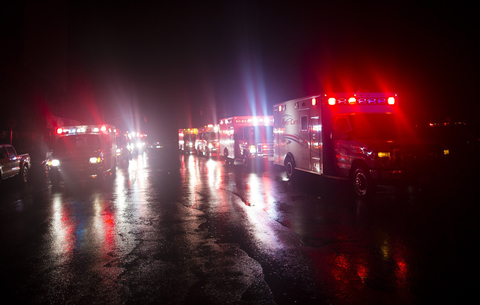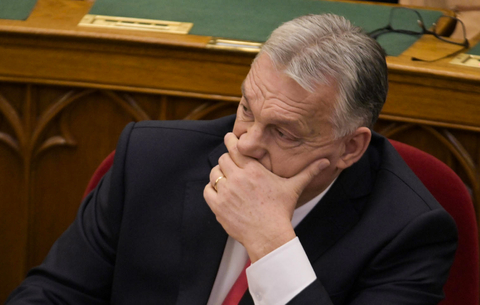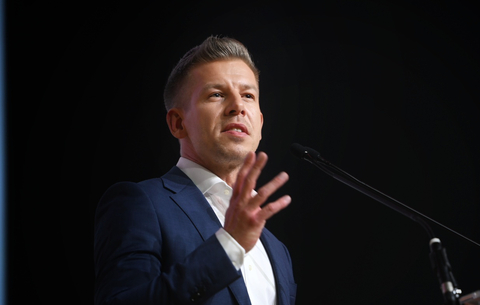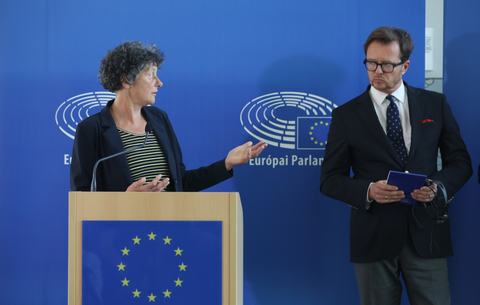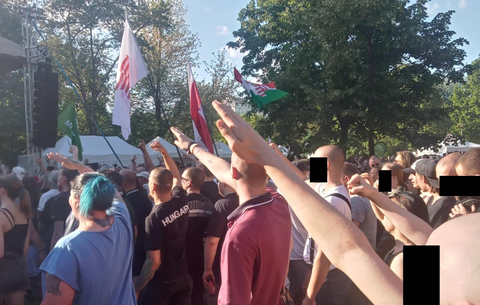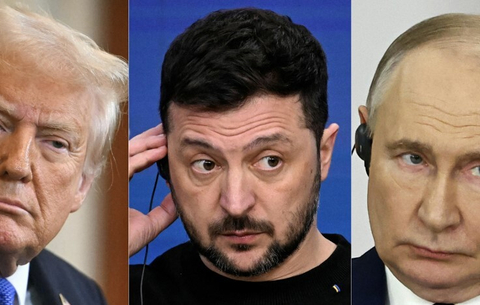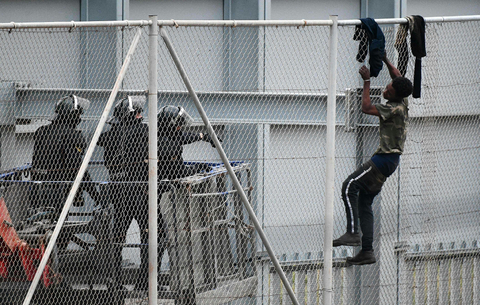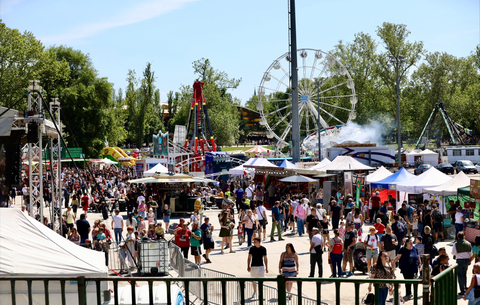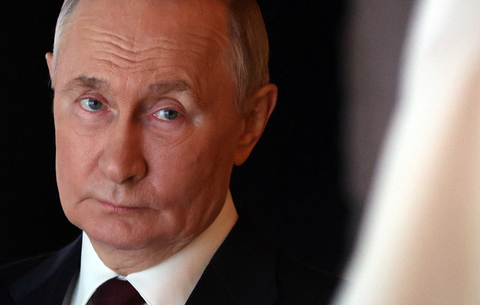Ferenc Koszeg
The departing depute of the Hungarian Helsinki Committee calls for provost duty regime change with the civil control of the armed forces.
© Dudás Szabolcs |
What ever people want to think, it is neither civil war nor football hooliganism. I don't believe in such oversimplifications. After the September confrontations, I talked to several of the arrested at Venyige utca Prison. There were some with criminal passed, but even they were under arrest for minor crimes. I found - the statistics probably agree - that it wasn't hard-core criminals who were arrested. The police clashed with radical but small groups, who derived their power from the feeling that the largest opposition party was behind them.
That's an assumption, and Fidesz's leaders deny it.
Even after the first clashes, Viktor Orban described the mood as understandable. We should not misunderstand Imre Kerenyi, who said before the elections that if the left won, there would be a revolution.
What of the police actions? Ottilia Solt said at the time of the 1989/90 regime change that he bore prejudice against only one minority: the police.
It was Sandor Revesz who first wrote that the "police ethnicity" was particularly criminal: at least as shown by the number of prosecutions launched against them compared to the size of the group. The Hungarian Helsinki Committee issued a statement the day after the TV siege saying that the police on Szabadsag ter had been abandoned by their commanding officers. It is unbelievable that Budapest police chiefs were unable to move enough officers to the square to resist an attack mounted by some 300 people. As for what followed over the next two days and on 23 October, there was certainly a sense that the authorities were taking revenge.
How unexpected was the street violence? Were you expecting these autumn clashes when you wrote an essay over the summer about the failure of the law and order regime change?
It didn't surprise me especially. It followed naturally from what was said after the elections. But the regime change in the world of law and order has nothing to do with what we have seen. In the summer, I thought a wave of reforms was starting which would change the forces of law and order as well - I thought some kind of civil oversight of the police would be created. The English model is a good one: an independent body investigates complaints made against the police. Political influence is also significant: the minister can tell police what kinds of measures to take. Of course, neither the minister nor the prime minister can give an illegal order, but they can put a stop to police attempts to interpret the law for their own ends. Budapest's police chief has no right to ban a legal demonstration, and nor can he claim that the demonstration on Kossuth ter is a political campaigning event that does not come under the heading of the law on free assembly. It is not clear who would have had the right to call off the fireworks ahead of the weather catastrophe on 20 August, or who could have warned the crowds of the approaching storm.
Az interjú második része (Oldaltörés)
In Hungary, it is supposedly the parliamentary committees that exercise civil oversight. For two years in the mid-1990s you were vice-chair of the national security committee. Do you see the work of the police and the secret services differently as a civil rights campaigner than you did as a committee member?Under the Antall government, the national security office was a law unto itself. One Christian Democrat MP had them prepare a report on his daughter's suitor, for example. Even as a committee member it was impossible to know who knew what. I think the National Security Office has a lot more information at its disposal than our political leadership wants to make use of. Even in 1992, when the crowds prevented Arpad Goncz, the then president, from delivering his speech on 23 October, I asked the police chiefs if they had received any information from the National Security Office. They all said no. But all that afternoon it had been possible to track the movements of the skinheads arriving from the provinces, and the National Security Office must have known they were heading for Budapest.
Let's add that the reports the Office wrote 14 years ago on right-wing radicals continue to be classified. Isn't this bipartisan enthusiasm for official secrets slightly unhealthy?
Absolutely. When the law on official secrets was being debated under the Horn government, I myself said how ridiculous it was to classify the techniques used by the national security services for 90 years. Imagine how absurd it would be if only now we could learn how crystal radios worked or how Istvan Tisza opposed the invasion of Serbia in 1914.
What's your view of the way Gabor Demszky, a former comrade in arms of yours, recently declared the courtyard of City Hall a building site, and how he has given the City Assembly to veto political rallies involving public address systems or stages?
In 1983, Demszky was stopped for speeding. He was driving an old Trabant up a steep street in Buda - you can imagine what kind of speed he was doing. They searched his car and clothes. He complained about the police action, and it emerged that the police had not been entitled to do as they had done. Shortly afterwards, a ministerial council resolution was passed which made everything that Demszky had complained about legal. We called it the lex Demszky. I thought this law would be one of the first to be withdrawn by Parliament after the regime change. But what happened was that the lex Demszky was incorporated into the police law, and it continues to be used. As far as the current situation is concerned - the City Assembly cannot impose restrictions on a a fundamental constitutional right.
Demszky is almost the only active politician remaining from the days of the democratic opposition of the regime change. You are standing down as leader of the Helsinki Committee. Others, Ottilia Solt, Miklos Szabo and most recently Gyorgy Bence, have died. Do you worry that your generation's disappearance from the stage could lead to the demise of liberalism in Hungary?
It's a serious concern. In 1994, I opposed entering into a coalition with the Socialists. Viktor Orban asked the question in an interview: "Imagine. What would happen if a social-liberal coalition came into power, forcing the conservatives and the radical right into one camp on the other side? The no man's land in between would remain barren for another generation." Since then, Viktor Orban has done everything to make his prediction come true. But I'd suggest that if the Free Democrats had not entered into coalition with the Socialists, who had an absolute majority in parliament, then Fidesz might not have gone so far to the right, and the dramatic division of the country into two might not have happened. The democratic opposition should have entrenched itself further into power, like in Poland, where much of both the left- and right-wing elites started inside Solidarity. It is no longer possible to choose, however: there is no way out of the coalition.
GERGELY FAHIDI
English version
hvg.hu
2006. október. 25. 07:47
Helsinki Committee
English version
hvg.hu
2006. október. 31. 11:20
Many, but small
English version
2006. november. 06. 11:00
Belfast and Budapest
English version
HVG
2006. október. 16. 16:45
Interview with Fitchs David Heslam
English version
hvg.hu
2006. október. 17. 12:10
Agora-phobia
English version
hvg.hu
2006. október. 31. 11:15
We insist
English version
hvg.hu
2006. október. 16. 16:40
